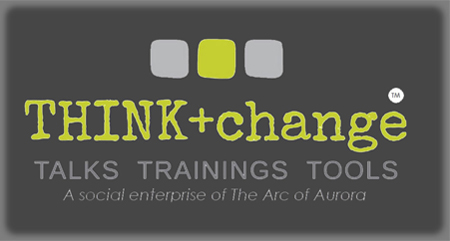 Being “trauma-informed” is more than just a buzzword! But, what exactly does it mean and why can it be valuable when supporting people with developmental disabilities (DD)?
Being “trauma-informed” is more than just a buzzword! But, what exactly does it mean and why can it be valuable when supporting people with developmental disabilities (DD)?
Why you should tune in
People with intellectual and developmental disabilities (IDD) are more likely to experience traumatic events, including mistreatment, abuse, neglect, exploitation, bullying, and other distressing situations compared to individuals without disabilities. With such a high prevalence of trauma, adopting a trauma-informed approach in your work can substantially impact individuals with IDD!
Learn all the ins and outs by watching a vodcast (video) or listening to a podcast (audio) episode below!
Episode 1: How Does Trauma Affect the Brain? Featuring Brian Tallant LPC, NADD-CC from the Denver START Program of RMHS
- Timestamps:
- 2:23 – Overview of trauma
- 5:35 – How trauma affects the brain
- 9:53 – Healing the brain from trauma
- 13:28 – The Neurosequential Model
- 17:17 – Supporting individuals with IDD who have experienced trauma
- Resources shared in this episode: National Child Traumatic Stress Network’s website to keep updated on a new manual of trauma-focused CBT therapy, a Fact sheet on trauma and children with IDD, and The Road to Recovery trauma toolkit.
- Listen to “TRAINING E67 How Does Trauma Affect the Brain?” on Spreaker.
Episode 2: What does it mean to be trauma-informed? Featuring Brian Tallant LPC, NADD-CC from the Denver START Program of RMHS
- Timestamps:
- 2:22 – Being trauma-informed
- 3:40 – Over-attribution of disability – asking “What happened to you” rather than “What’s wrong with you”
- 9:20 – The 6 principles of trauma-informed care – Safety, Trustworthiness & Transparency, Peer Support, Collaboration & Mutuality, Empowerment & Choice, Sensitivity to Cultural Issues
- 18:45 – Being trauma-informed in response to behavioral challenges
- 25:50 – Supporting people with developmental disabilities using trauma-informed practices in everyday life
- Listen to “TRAININGS E68 What Does It Mean to Be Trauma-Informed?” on Spreaker.
Episode 3: Why We Need Trauma-Informed Organizations, featuring Laura McArthur, Ph.D. from Resilient Futures
- Timestamps:
- 1:55 – The importance of a trauma-informed community
- 3:38 – The places in our community where trauma-informed practices can be utilized
- 7:30 – Cultural awareness and unconscious bias in trauma-informed work
- 12:12 – The “3 Cs” of trauma-informed work – Connection, Coping, and Competence
- 22:00 – Resources to cultivate trauma-informed awareness
- 24:52 – Societal injustice, systemic oppression, and trauma
- Resources shared in this episode: Bruce Perry MD & Ph.D. and Oprah’s series on what it means to be trauma-informed, What Happened to You?: Conversations on Trauma, Resilience, and Healing, Resilient Futures resources, Helping Traumatized Children Learn Vol. I, ACEs study – Adverse Childhood Experiences.
- Listen to “TRAININGS E69 Why We Need Trauma-Informed Organizations and People” on Spreaker.
-
Episode 4: How to Build a Trauma-Informed Organization, featuring Laura McArthur, Ph.D. from Resilient Futures
- Timestamps:
- 1:40 – The benefits of building a trauma-informed organization
- 2:32 – Before you start shifting your organization to trauma-informed work
- 3:47 – The first steps to creating a trauma-informed organization
- 6:12 – Trauma-informed work in your own life
- 13:54 – Resources to help you build a trauma-informed organization
- 16:43 – Final thoughts from Laura: trauma-informed work takes time!
- Resources shared in this episode: Burnout: The Secret to Unlocking the Stress Cycle” by Emily & Amelia Nagoski, Helping Traumatized Children Learn Vol. II, Rest as Resistance: A Manifesto” by Tricia Hersey.
- Listen to “TRAININGS E70 How to Build a Trauma-Informed Organization and Mindset” on Spreaker.
This work was made possible through support from Limbaugh Law Firm, Colorado Developmental Disabilities Council, Developmental Pathways, Arc Thrift Stores, and The Arc of Aurora.
